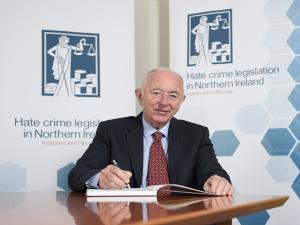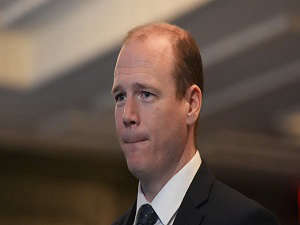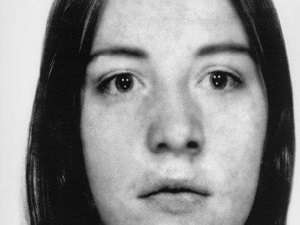
By David Young and Michael McHugh, PA
A public consultation on proposals to reform hate crime laws in Northern Ireland has received more than 1,000 responses.
Judge Desmond Marrinan is leading a panel charged with recommending changes to current legislation, which is about 15 years old.
Proposals include expanding the definition of a hate crime to include attacks on transgender or homeless people and introducing changes to focus the criminal justice system on tackling the issue.
Around six crimes such as racist or sectarian abuse are reported every day on average.
The public consultation process opened in January and closed late last week.
It received 225 written submissions and almost 800 online contributions.
Judge Marrinan said: "Hate crime, directly or indirectly, impacts on every member of our society.
"The response from the public, along with submissions from statutory and non-statutory bodies across the country, signals the importance and urgency of finding better ways of dealing with hate crime.
"I thank everyone who has engaged, supported and encouraged this work.
"I would particularly like to acknowledge the many victims and survivors who stepped forward and shared their personal, often difficult and harrowing, accounts with me and my team.
"All submissions will help inform the work of the review as I move forward to present my finished work to the Department of Justice later this year."
Judge Marrinan has described the current legal framework as "piecemeal" and "ineffective".
The review fulfils a commitment made by the Stormont executive.
Characteristics protected under existing legislation are race, religion, sexual orientation and disability.
The review is considering expanding that to include gender, addressing harassment or abuse of women as well as transgender and intersex.
Age could also become an aggravating factor leading to a hate crime charge, like abuse of the elderly.
Homelessness may also be included, although opponents believe it would open the floodgates for other disadvantaged groups to request inclusion.
The public consultation was supported by public outreach events held in Ballymena, Belfast, Craigavon, Londonderry, Dungannon and Enniskillen.


 Kneecap to headline festival two days after terror charge
Kneecap to headline festival two days after terror charge
 Gordon Lyons to attend first GAA match as Stormont Communities Minister
Gordon Lyons to attend first GAA match as Stormont Communities Minister
 Fresh appeal over 1973 murder of 18-year-old whose body was found in quarry
Fresh appeal over 1973 murder of 18-year-old whose body was found in quarry
 Kneecap say terror charge is ‘carnival of distraction’ and ‘political policing’
Kneecap say terror charge is ‘carnival of distraction’ and ‘political policing’
 Woman assaulted while jogging in West Belfast
Woman assaulted while jogging in West Belfast